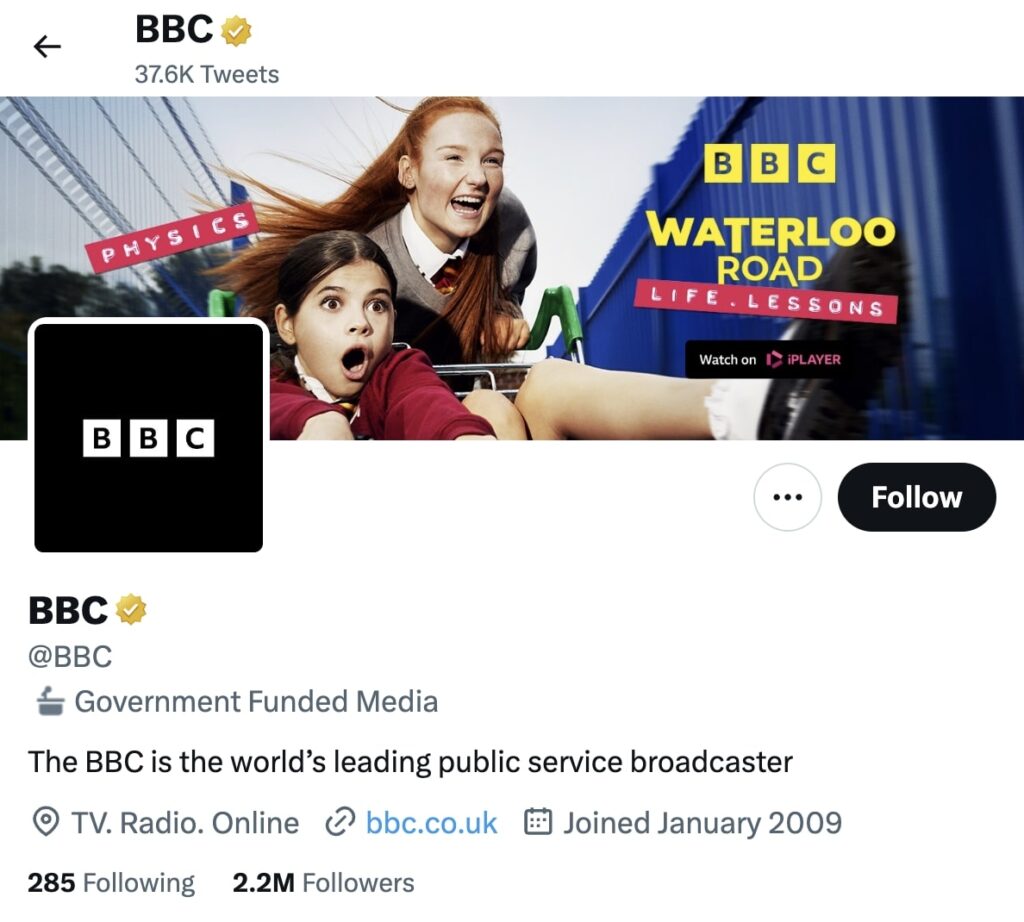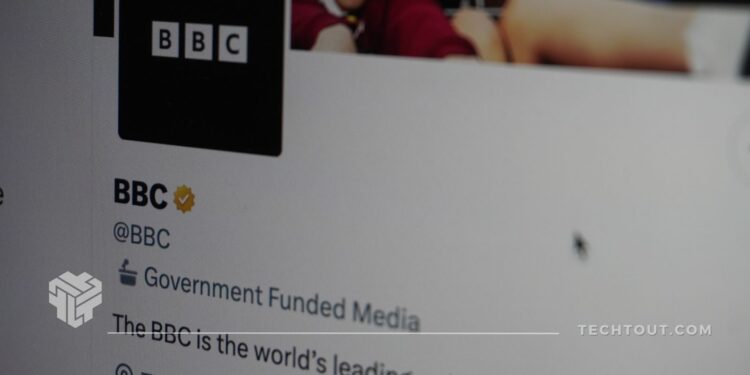BBC is protesting against Twitter’s new label for its main account @BBC, which describes the corporation as “Government Funded Media.” The BBC claims that the label is inaccurate, as it has always been independent and is funded by the British public through the license fee, not directly by the government.
The corporation has contacted Twitter to resolve the issue “as soon as possible.” Elon Musk, who has been involved in similar discussions with NPR, also expressed doubt about the accuracy of the label, suggesting that a label linking to “exact funding sources” would make more sense for maximum transparency and accuracy.
The @BBC account primarily shares updates about BBC-produced TV programs, radio shows, podcasts, and other non-news material. It has 2.2 million followers, while larger accounts associated with the BBC’s news and sports output are not currently being described in the same way.

The label “government funded media” was also recently given to US public broadcaster NPR’s handle as “state-affiliated media,” and was later changed to the same tag that has been applied to the @BBC account. NPR had objected to the “state-affiliated media” label, stating that it did not apply to the public broadcaster under Twitter’s own guidelines.
The label links through to a page on Twitter’s help website, which defines “state-affiliated media accounts” as “outlets where the state exercises control over editorial content through financial resources, direct or indirect political pressures, and/or control over production and distribution.”
The BBC operates through a Royal Charter agreed with the government, which states that the corporation “must be independent,” particularly over “editorial and creative decisions, the times and manner in which its output and services are supplied, and in the management of its affairs.”
The license fee raised £3.8 billion ($4.7 billion) in 2022 for the BBC, accounting for about 71% of its total income, while the rest came from its commercial and other activities. The BBC also receives more than £90 million per year from the government to support the BBC World Service, which predominantly serves non-UK audiences.






![How to enable dark mode on Snapchat [year] 8 2025 A 3d render of Snapchat logo](https://techtout.com/wp-content/uploads/2023/03/snapchat-3d-logo-render-75x75.jpg)


![How to enable dark mode on Instagram [year] 11 2025 Instagram dark mode guide](https://techtout.com/wp-content/uploads/2023/01/dark-mode-instagram-120x86.jpg)
![Best Metal Gaming Laptops [year] 12 2025 Best metal body laptops on Amazon](https://techtout.com/wp-content/uploads/2023/05/best-metal-gaming-laptops-120x86.jpg)
![25 popular Linux distros [year] 13 2025 Most popular Linux distros in 2023](https://techtout.com/wp-content/uploads/2023/08/popular-linux-distros-120x86.jpg)
![Instagram story decoration Ideas in [year] 14 2025 A photo of a person using Instagram on iPhone, showing Instagram stories decorations](https://techtout.com/wp-content/uploads/2023/02/decorate-instagram-stories-120x86.jpg)
![10 Best Browsers for iPhone in [year] 15 2025 Best iPhones browsers](https://techtout.com/wp-content/uploads/2023/05/best-iphone-browsers-120x86.jpg)
![Top 9 lifestyle apps that will improve the quality of your life in [year] 16 2025 Lifestyle apps for IOs and Android users](https://techtout.com/wp-content/uploads/2023/07/top-lifestyle-app-120x86.jpg)


![11 Latest Instagram Tips and Tricks [year] 20 2025 high angle photo of a mobile](https://techtout.com/wp-content/uploads/2020/08/instagram-profile-scaled-1-120x86.jpg)






